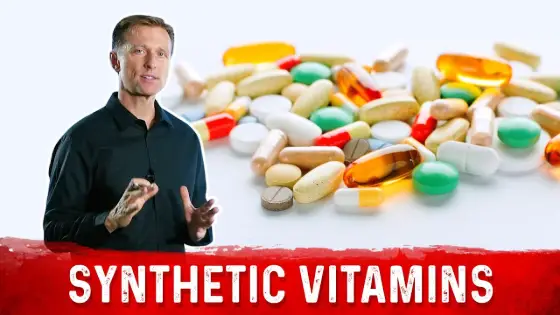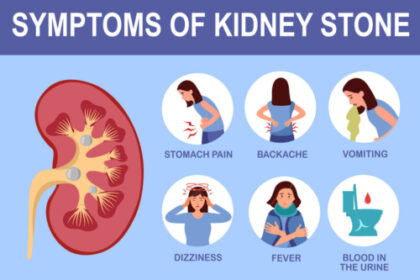In a world flooded with synthetic supplements, many people unknowingly consume vitamins that may be doing more harm than good. Some synthetic vitamins are poorly absorbed, can accumulate to toxic levels, and have been linked to severe health risks like arterial blockages, kidney stones, and even cancer. If you’re taking vitamins to improve your health, make sure you’re choosing real, whole-food sources rather than synthetic imitations. Here are the five most dangerous synthetic vitamins you should avoid:
1. Synthetic Vitamin A (Retinyl Palmitate & Retinyl Acetate)
The Danger:
High doses of synthetic vitamin A can be toxic, leading to liver damage, brittle bones, and an increased risk of birth defects in pregnant women. Studies also show that smokers who take synthetic vitamin A have a higher risk of lung cancer.
Better Alternative:
Get your vitamin A from natural beta-carotene found in carrots, sweet potatoes, and dark leafy greens. The body converts beta-carotene into vitamin A as needed, preventing toxicity. Eat your carrots, but not baby carrots.
Recommended Reading: Stop Eating Baby Carrots For These 2 Unhealthy And Inedible Reasons
2. Synthetic Vitamin E (dl-Alpha Tocopherol)
The Danger:
The synthetic form of vitamin E is isolated and lacks the full spectrum of tocopherols and tocotrienols found in nature. Research has linked synthetic vitamin E to an increased risk of prostate cancer, poor immune function, and arterial blockages.
Better Alternative:
Choose natural vitamin E from almonds, Olive Oil, and avocados, which contain all eight forms of vitamin E necessary for optimal health.
I recommend Kasandrinos Olive Oil, their olive oil is Organic, cold-pressed and extra virgin. It is sourced from Greece and a family run business. Click here to visit their website.
Recommended Reading: This is What You Need To Know About Olive Oil But Aren’t Told
3. Synthetic Vitamin B6 (Pyridoxine Hydrochloride in High Doses)
The Danger:
While vitamin B6 is essential, excessive intake of the synthetic form can lead to nerve damage, tingling, and numbness. Some people develop dependency on high doses, making it difficult to stop supplementation without side effects.
Better Alternative:
Get B6 naturally from bananas, grass-fed meats, and chickpeas. These whole foods provide a balanced form of B6 without the risk of toxicity.
I recommend the Organ meats supplement from Paleovalley, I take this every single day and I have personally measured and tracked my body to be in a better fat burning state while taking this. Click here to get 15% off this fantastic supplement!
4. Synthetic Vitamin C (Ascorbic Acid – Isolated Form)
The Danger:
Many people assume all vitamin C is the same, but isolated ascorbic acid lacks the natural bioflavonoids found in whole-food sources. High doses of synthetic vitamin C have been linked to kidney stones and imbalanced antioxidant activity, which can cause oxidative stress rather than prevent it.
Better Alternative:
Opt for whole-food vitamin C from acerola cherry, camu camu, or amla berry, which provide vitamin C in its complete, bioavailable form.
Recommended Supplement: Radiate 21 contains camu camu, lemon, lime and orange extracts and is a valuable source not only of vitamin C but 21 botanicals to support gut health, lymphatic health, energy levels and more. Visit Radiate21.com to learn more.
5. Synthetic Vitamin D2 (Ergocalciferol – Plant-Based Synthetic Form)
The Danger:
Vitamin D is crucial for overall health, but synthetic D2 is far less effective than natural D3. Worse, D2 has been associated with arterial calcification, making it more likely to clog arteries rather than protect them.
Better Alternative:
Get your vitamin D naturally from sunlight exposure or grass-fed animal sources that provide vitamin D3. If you need a supplement, choose lichen-derived vitamin D3 instead of synthetic D2. Eggs are also a great source of vitamin D3, make sure to consume only pasture-raised eggs. These are the healthiest eggs you can get.
Conclusion: Only Use Real, Whole-Food Vitamins
Many synthetic vitamins fail to mimic nature’s complexity and can cause serious health risks when taken in high doses. Instead of relying on synthetic supplements, choose whole-food vitamins sourced from organic, nutrient-rich foods. Your body was designed to absorb and utilize nutrients from real food, not lab-created imitations.
If you’re currently taking synthetic vitamins, consider switching to whole-food-based supplements or focusing on a nutrient-rich diet to support your health naturally. Your body—and your long-term health—will thank you.




